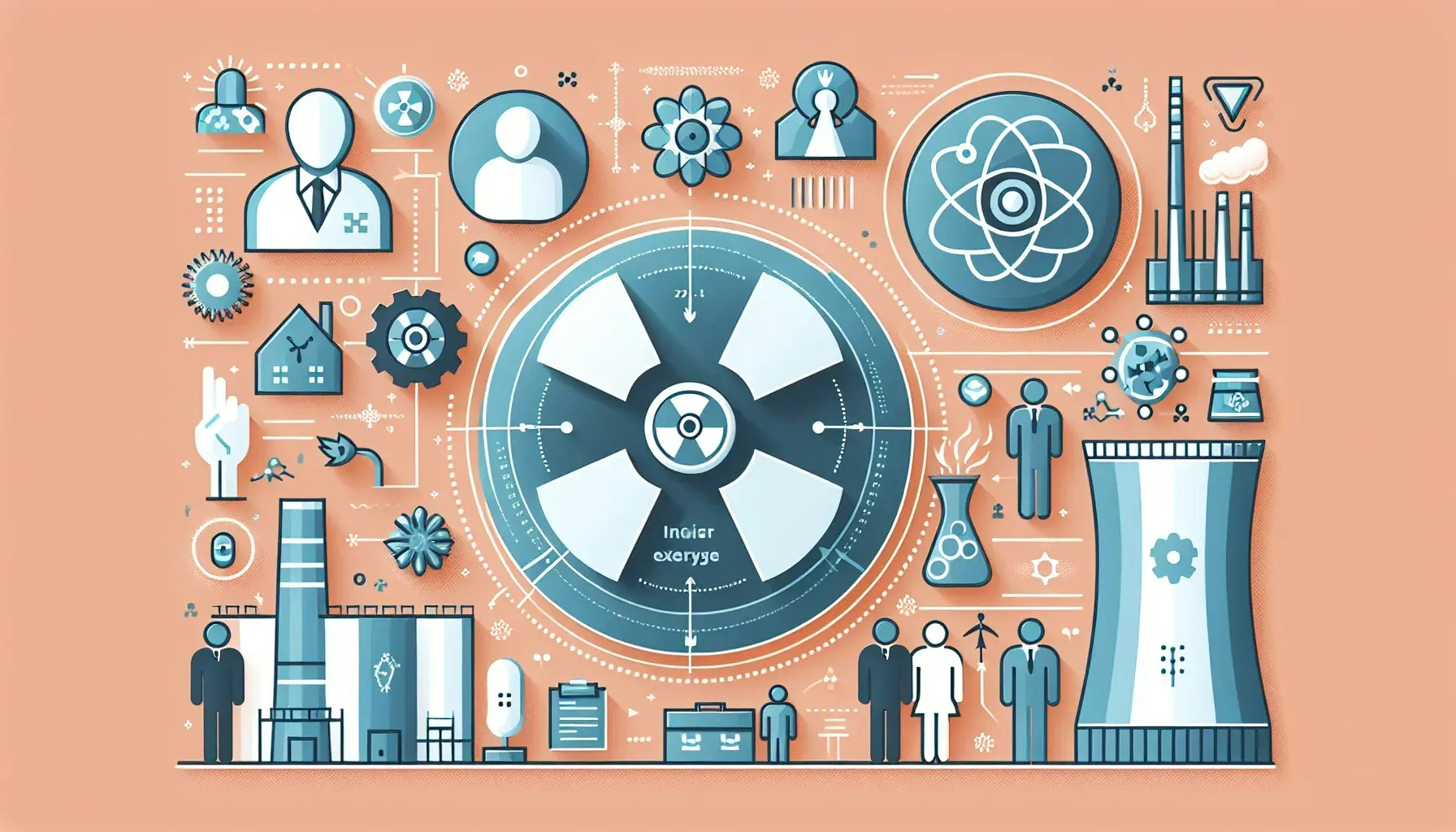Nuclear Energy Advantages and Disadvantages
Nuclear Central

In the quest for sustainable energy sources, nuclear energy often emerges as a topic of heated debate. This blog post aims to delve into the intricacies of nuclear energy, exploring both its advantages and disadvantages. We will examine the impact of nuclear energy on our society, environment, and economy, providing a comprehensive understanding of this complex issue.
Understanding Nuclear Energy
Nuclear energy, a form of energy released during nuclear reactions, has been a significant part of the global energy mix for decades. It is the energy held in the nucleus of an atom, and when that atom splits, nuclear energy is released in the form of heat. This heat is then used to generate electricity.
The process of nuclear fission, where a heavy nucleus splits into two or more smaller nuclei, is the most common method of generating nuclear energy. This process releases a tremendous amount of energy, which is one of the reasons why nuclear power is such a potent energy source.
However, the process of nuclear fission also produces radioactive waste, which is one of the main disadvantages of nuclear energy. This waste can remain radioactive for thousands of years, posing a significant challenge for its safe storage and disposal.
Advantages of Nuclear Energy
One of the significant advantages of nuclear energy is its high energy density. The amount of energy released in a nuclear fission reaction is millions of times greater than that released in burning a fossil fuel atom. This means that a small amount of nuclear fuel can produce a large amount of energy.
Another advantage of nuclear energy is that it is a reliable source of energy. Unlike renewable energy sources like wind and solar, nuclear power does not depend on weather conditions and can provide a constant power output. This reliability makes nuclear energy an attractive option for meeting base-load energy demand.
Nuclear energy also has a lower carbon footprint compared to fossil fuels. The process of nuclear fission does not produce carbon dioxide or other greenhouse gases, making nuclear energy a potential solution for mitigating climate change.
Disadvantages of Nuclear Energy
Despite its advantages, nuclear energy also has several significant disadvantages. One of the main disadvantages is the production of radioactive waste. This waste can remain hazardous for thousands of years and poses a significant challenge for its safe storage and disposal.
Another disadvantage of nuclear energy is the risk of nuclear accidents. While the safety measures at nuclear power plants have improved significantly over the years, the possibility of accidents, as seen in Chernobyl and Fukushima, cannot be completely ruled out. Such accidents can have devastating effects on the environment and human health.
The high initial cost of building a nuclear power plant is another disadvantage. These plants are expensive to build and maintain, and the cost of decommissioning a plant at the end of its life can also be high.
The Role of Nuclear Energy in the Energy Mix
Nuclear energy currently accounts for about 10% of the world's electricity supply, with some countries relying on it more heavily than others. For example, in France, about 70% of electricity comes from nuclear power.
While the use of nuclear energy has declined in some countries following the Fukushima disaster, others continue to invest in it as a means to meet their energy needs and reduce their carbon emissions. China, for example, is currently building more nuclear power plants than any other country.
The role of nuclear energy in the future energy mix will likely depend on a range of factors, including advances in nuclear technology, changes in public opinion, and government policies.
The Future of Nuclear Energy
The future of nuclear energy is uncertain and will likely depend on a range of factors. Advances in nuclear technology, such as the development of small modular reactors and fusion power, could make nuclear energy safer and more economical.
Public opinion will also play a crucial role in the future of nuclear energy. While some people see nuclear energy as a necessary part of the solution to climate change, others are concerned about the risks associated with it.
Government policies will also have a significant impact. Policies that favor the development of renewable energy sources could limit the growth of nuclear power, while policies that recognize the low-carbon benefits of nuclear energy could support its expansion.
Conclusion
Nuclear energy, with its high energy density and low carbon emissions, offers significant advantages. However, the challenges associated with waste disposal, the risk of accidents, and high initial costs are substantial disadvantages.
The future of nuclear energy is uncertain and will depend on a range of factors, including technological advances, public opinion, and government policies. As we move towards a more sustainable energy future, it is essential to consider all these factors and make informed decisions about the role of nuclear energy in our energy mix.
The Balance of Nuclear Energy: Advantages and Disadvantages
In conclusion, nuclear energy presents a complex mix of advantages and disadvantages. Its high energy density and low carbon emissions position it as a potent tool in the fight against climate change. However, the challenges of waste disposal, potential for accidents, and high costs cannot be overlooked. As we navigate towards a sustainable energy future, the role of nuclear energy remains a topic of intense debate and study.